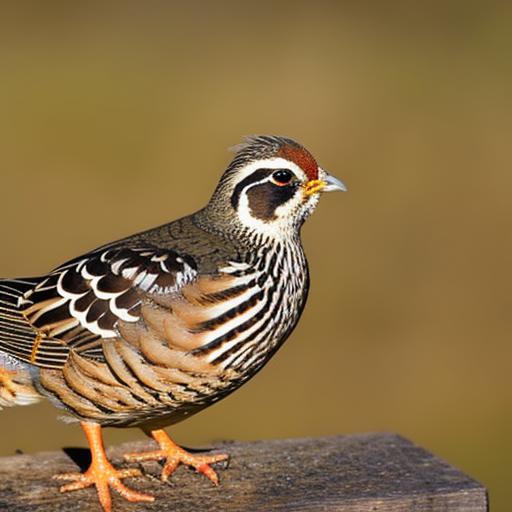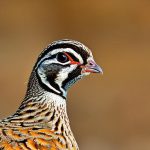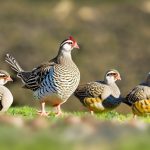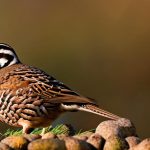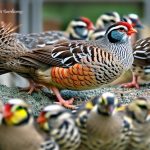Quail keeping is a rewarding and enjoyable hobby that has been gaining popularity among garden enthusiasts in recent years. Quails are small, ground-dwelling birds that are known for their gentle nature and low maintenance requirements, making them an ideal addition to any garden setting. Whether you are a seasoned poultry keeper or a beginner looking to start a new hobby, quail keeping can be a fulfilling and educational experience.
Quails are known for their ability to thrive in a variety of environments, making them well-suited for garden settings. They are also prolific layers, producing delicious and nutritious eggs that can be enjoyed by the whole family. In addition to their practical benefits, quails are also fascinating creatures to observe, with their unique behaviors and social dynamics adding an extra layer of interest to any garden space. In this article, we will explore the various aspects of quail keeping, from choosing the right breed for your garden to creating a safe and comfortable habitat for your quails, as well as feeding, caring for, and managing the health and wellbeing of your feathered friends. We will also delve into the fascinating world of quail behavior and social dynamics, as well as the numerous benefits of keeping quails in your garden.
Key Takeaways
- Quail keeping is a rewarding hobby that can be enjoyed in a garden setting.
- When choosing a quail breed for your garden, consider factors such as size, egg production, and temperament.
- Creating a safe and comfortable habitat for quails involves providing shelter, protection from predators, and suitable nesting areas.
- Feeding and caring for quails in your garden requires a balanced diet, clean water, and regular health checks.
- Managing quail health and wellbeing involves monitoring for signs of illness, providing proper veterinary care, and maintaining a clean living environment.
- Understanding quail behavior and social dynamics can help create a harmonious environment for your quail flock.
- Benefits of keeping quails in your garden include fresh eggs, pest control, and the enjoyment of observing these charming birds.
Choosing the Right Quail Breed for Your Garden
When it comes to choosing the right quail breed for your garden, there are several factors to consider. Different breeds of quails have varying characteristics, such as size, egg production, and temperament, so it’s important to do your research and select a breed that aligns with your specific needs and preferences. Some popular quail breeds for garden settings include the Coturnix quail, also known as the Japanese quail, which is prized for its prolific egg-laying abilities and gentle nature. Another popular breed is the Bobwhite quail, which is known for its striking appearance and distinctive call.
In addition to considering the practical aspects of quail breeds, such as egg production and temperament, it’s also important to consider the space available in your garden and any local regulations or restrictions that may apply to keeping quails. Some breeds of quails require more space than others, so it’s important to ensure that you have adequate room to accommodate your chosen breed. It’s also a good idea to check with local authorities or homeowner’s associations to ensure that keeping quails is permitted in your area. By carefully considering these factors and doing thorough research, you can select the right quail breed for your garden and set yourself up for a successful and enjoyable quail keeping experience.
Creating a Safe and Comfortable Habitat for Quails
Creating a safe and comfortable habitat for your quails is essential for their health and wellbeing. Quails are ground-dwelling birds that require a secure and predator-proof enclosure to protect them from potential threats such as predators and extreme weather conditions. When designing a habitat for your quails, it’s important to consider factors such as space requirements, shelter, and access to food and water. Quails are social birds that thrive in groups, so it’s important to provide enough space for them to move around comfortably and interact with each other.
Adequate shelter is also crucial for quails, providing protection from the elements and a safe place to roost at night. A well-ventilated coop or aviary with a solid roof and secure walls is essential for keeping your quails safe and comfortable. It’s also important to provide access to fresh water and a balanced diet to ensure that your quails remain healthy and happy. By creating a safe and comfortable habitat for your quails, you can provide them with the ideal environment to thrive and express their natural behaviors.
Feeding and Caring for Quails in Your Garden
Feeding and caring for quails in your garden is relatively straightforward, as these birds have simple dietary requirements and low maintenance needs. Quails are omnivorous birds that require a balanced diet consisting of high-quality commercial feed, fresh water, and occasional treats such as fruits, vegetables, and mealworms. It’s important to provide access to fresh water at all times, as quails can quickly become dehydrated, especially during hot weather.
In addition to providing a balanced diet, it’s important to regularly clean the quail enclosure to maintain a clean and hygienic environment for your birds. This includes removing soiled bedding, cleaning food and water containers, and regularly inspecting the enclosure for any signs of wear or damage. Regular health checks are also important for monitoring the wellbeing of your quails, including checking for signs of illness or injury. By providing a balanced diet, clean living environment, and regular health checks, you can ensure that your quails remain healthy and happy in your garden.
Managing Quail Health and Wellbeing
Managing the health and wellbeing of your quails is an important aspect of quail keeping. Quails are generally hardy birds that are resistant to many common poultry diseases, but it’s still important to be vigilant about their health and take proactive measures to prevent illness. Regular health checks are essential for monitoring the wellbeing of your quails, including checking for signs of illness or injury. It’s also important to provide a clean living environment and access to fresh water and a balanced diet to support their overall health.
In addition to regular health checks, it’s important to be aware of common health issues that can affect quails, such as respiratory infections, parasites, and injuries. By familiarizing yourself with the signs of illness and taking prompt action if you notice any abnormalities in your quails’ behavior or appearance, you can help prevent minor issues from developing into more serious health problems. It’s also a good idea to establish a relationship with a veterinarian who is experienced in avian medicine, so you have access to professional advice and care if needed. By staying proactive about managing the health and wellbeing of your quails, you can help ensure that they lead long and healthy lives in your garden.
Understanding Quail Behavior and Social Dynamics
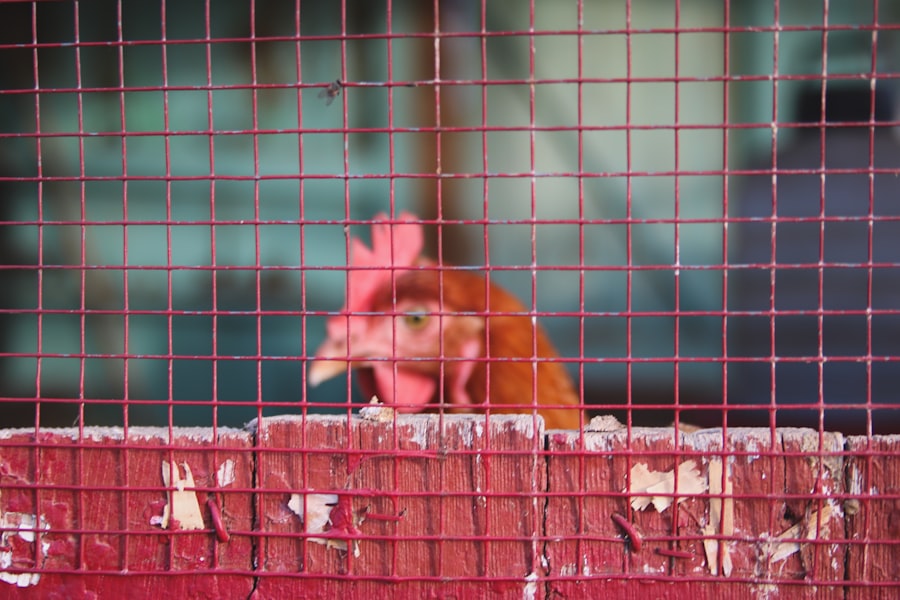
Quails are fascinating birds with unique behaviors and social dynamics that make them an interesting addition to any garden setting. These small ground-dwelling birds are known for their gentle nature and sociable tendencies, often forming close-knit groups within their flock. Understanding quail behavior and social dynamics can help you create an environment that supports their natural instincts and allows them to thrive.
Quails are social birds that thrive in groups, so it’s important to provide enough space for them to move around comfortably and interact with each other. They are also known for their gentle nature, rarely displaying aggressive behaviors towards each other or other animals. However, it’s still important to monitor their interactions and intervene if any signs of aggression or bullying occur within the flock. Providing enrichment activities such as dust baths, perches, and hiding spots can also help stimulate their natural behaviors and keep them mentally stimulated.
In addition to their social dynamics, quails also have unique behaviors such as dust bathing, foraging for food, and vocalizing with each other. By observing these behaviors and understanding their significance, you can gain insight into the natural instincts of your quails and provide an environment that supports their wellbeing. By understanding quail behavior and social dynamics, you can create a harmonious environment that allows your feathered friends to express their natural behaviors and thrive in your garden.
Benefits of Keeping Quails in Your Garden
There are numerous benefits to keeping quails in your garden, making them an attractive addition to any poultry enthusiast or garden hobbyist. Quails are prolific layers, producing delicious and nutritious eggs that can be enjoyed by the whole family. Their small size makes them well-suited for smaller garden spaces, allowing even urban dwellers to enjoy the benefits of keeping poultry. In addition to their practical benefits, quails are also fascinating creatures to observe, with their unique behaviors and social dynamics adding an extra layer of interest to any garden space.
Quails are also low maintenance birds that require minimal care compared to other poultry species such as chickens or ducks. They have simple dietary requirements and are generally hardy birds that are resistant to many common poultry diseases. This makes them an ideal choice for beginners or those with limited time to dedicate to poultry keeping. In addition to their practical benefits, keeping quails can also be a rewarding educational experience for children and adults alike, providing an opportunity to learn about animal husbandry and the natural behaviors of these fascinating birds.
In conclusion, quail keeping is a rewarding hobby that offers numerous benefits for garden enthusiasts. From choosing the right breed for your garden to creating a safe and comfortable habitat for your quails, as well as feeding, caring for, managing the health and wellbeing of your feathered friends, understanding their behavior and social dynamics, there are many aspects to consider when embarking on this fulfilling journey. By carefully considering these factors and providing a suitable environment for your quails, you can enjoy the many practical benefits of keeping these gentle birds in your garden while also gaining insight into their fascinating behaviors and social dynamics. Whether you are a seasoned poultry keeper or a beginner looking to start a new hobby, quail keeping can be a fulfilling and educational experience that adds an extra layer of interest to any garden setting.
If you’re considering keeping quails in your garden, you might also be interested in learning about the egg-laying habits of guinea fowl. Poultry Wizard has a helpful article on when guinea fowl lay eggs, which can provide valuable insights into the breeding and care of these birds. Understanding the egg-laying patterns of different poultry species can help you create a well-rounded and successful garden flock.
FAQs
What are the benefits of keeping quails in your garden?
Quails can help control pests in your garden, such as snails, slugs, and insects. Their droppings also act as a natural fertilizer for the soil.
What do quails eat?
Quails eat a variety of foods including seeds, grains, insects, and small plants. It’s important to provide them with a balanced diet to keep them healthy.
How much space do quails need in a garden?
Quails don’t require a lot of space and can be kept in a relatively small area. However, it’s important to provide them with enough room to move around and forage for food.
Are quails noisy?
Quails are generally quiet birds, especially compared to chickens. They make soft, low cooing sounds and are unlikely to disturb neighbors.
Do quails need a coop or shelter?
Quails do need a shelter to protect them from predators and the elements. A simple coop or shelter with a secure enclosure is sufficient for keeping quails in your garden.
Are quails easy to care for?
Quails are relatively low-maintenance birds and can be easy to care for, especially for those with some experience in keeping poultry. They require regular feeding, access to clean water, and a clean living environment.
Can quails be kept with other animals in the garden?
Quails can coexist with other animals in the garden, but it’s important to ensure that they are not exposed to any potential predators. It’s also important to provide them with their own space and resources to prevent competition with other animals.
Meet Walter, the feathered-friend fanatic of Florida! Nestled in the sunshine state, Walter struts through life with his feathered companions, clucking his way to happiness. With a coop that’s fancier than a five-star hotel, he’s the Don Juan of the chicken world. When he’s not teaching his hens to do the cha-cha, you’ll find him in a heated debate with his prized rooster, Sir Clucks-a-Lot. Walter’s poultry passion is no yolk; he’s the sunny-side-up guy you never knew you needed in your flock of friends!

